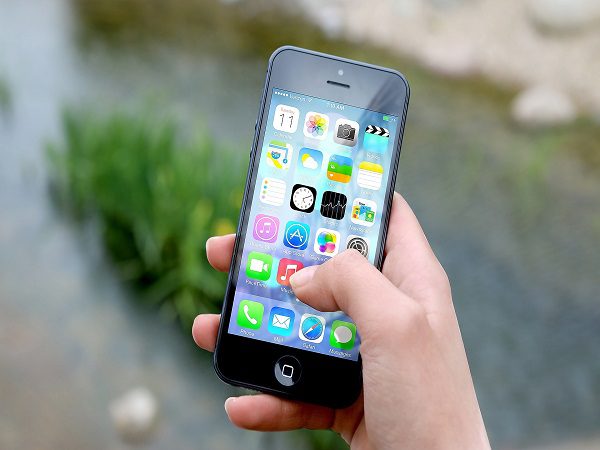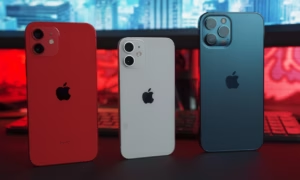Introduction
In the ever-evolving world of smartphones, the perennial debate between iOS and Android users rages on. The competition between these two mobile operating systems has been a driving force behind the constant innovation we witness in the tech industry. Each platform has its fervent supporters, and the battle for supremacy continues unabated. This article delves into the intricacies of the iOS vs. Android showdown, aiming to shed light on the distinctive features that make the iPhone stand out in this fiercely competitive landscape.
The Evolution of iOS and Android
To understand the ongoing smartphone battle, we must first trace the roots of iOS and Android. Apple introduced the iOS operating system in 2007, revolutionizing the smartphone industry with the launch of the first iPhone. Android, developed by Google, made its debut in 2008, entering the market as an open-source alternative. Over the years, both platforms have undergone significant transformations, introducing new features and refining their user interfaces to cater to the ever-changing needs of consumers.
User Interface and Design
One of the defining aspects of any smartphone is its user interface and design. Apple’s iOS is celebrated for its sleek and minimalist design, characterized by a clean layout and intuitive navigation. The simplicity of the iOS interface appeals to users who prefer a streamlined and user-friendly experience. On the other hand, Android’s open-source nature allows for a greater degree of customization. Users can personalize their devices with widgets, themes, and alternative launchers, providing a more tailored experience.
App Ecosystem
The app ecosystem plays a pivotal role in determining the success of a mobile operating system. Apple’s App Store boasts a curated selection of high-quality applications, with stringent guidelines ensuring a consistent and secure user experience. While Android’s Google Play Store offers a vast array of applications, the open nature of the platform makes it more susceptible to security concerns. However, Android’s openness also fosters innovation, allowing developers greater flexibility in creating diverse apps.
Security and Privacy
Security is a paramount concern for smartphone users, and both iOS and Android have made strides in enhancing their security features. Apple’s closed ecosystem and stringent app review process contribute to a more secure environment for iOS users. The company’s commitment to privacy is evident in features like App Tracking Transparency, giving users control over their data. Android, with its open-source nature, relies on a combination of Google’s security measures and device manufacturers’ efforts to safeguard user data. The fragmentation of the Android market, with various manufacturers using different versions of the OS, can, however, pose challenges in delivering timely security updates to all devices.
Hardware Integration
Apple’s control over both hardware and software allows for seamless integration between its devices. The iPhone, iPad, Apple Watch, and Macbook work in harmony within the Apple ecosystem, creating a cohesive user experience. Android, being an open platform, is adopted by a multitude of device manufacturers, resulting in a diverse range of hardware specifications. While this diversity offers consumers more choices, it can also lead to inconsistencies in performance and software updates across different devices.
Updates and Fragmentation
The timely delivery of software updates is a critical aspect of ensuring a secure and up-to-date user experience. Apple’s centralized control over iOS allows for swift and simultaneous updates across all supported devices. In contrast, Android’s fragmentation arises from the multitude of manufacturers responsible for delivering updates to their respective devices. This can result in delays, with some users receiving the latest features and security patches long after others.
Voice Assistants: Siri vs. Google Assistant
The battle of the virtual assistants adds another layer to the iOS vs. Android rivalry. Siri, Apple’s voice-activated assistant, emphasizes natural language processing and integrates seamlessly with iOS. On the Android side, Google Assistant leverages the vast capabilities of Google’s search algorithms to provide a robust and context-aware experience. Both assistants have their strengths, but the choice between them often comes down to personal preference and the ecosystem in which the user is invested.
Innovation and Competition
The ongoing competition between iOS and Android has been a driving force behind technological innovation. Each platform seeks to outdo the other, resulting in continuous improvements and the introduction of groundbreaking features. Apple’s dedication to creating a seamless and integrated user experience has set a benchmark for the industry, while Android’s open nature has spurred diversity and experimentation.
Conclusion
In the relentless smartphone battle between iOS and Android, the iPhone stands out as a symbol of innovation, design excellence, and user-focused simplicity. While Android offers a more diverse and customizable experience, the iPhone’s integration into the broader Apple ecosystem and its commitment to security and privacy have contributed to its enduring popularity. Ultimately, the choice between iOS and Android comes down to individual preferences, priorities, and the user experience that aligns with one’s technological needs.



































